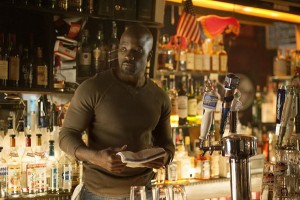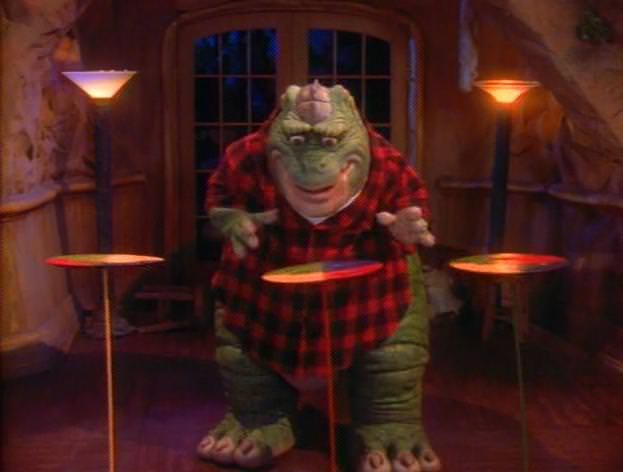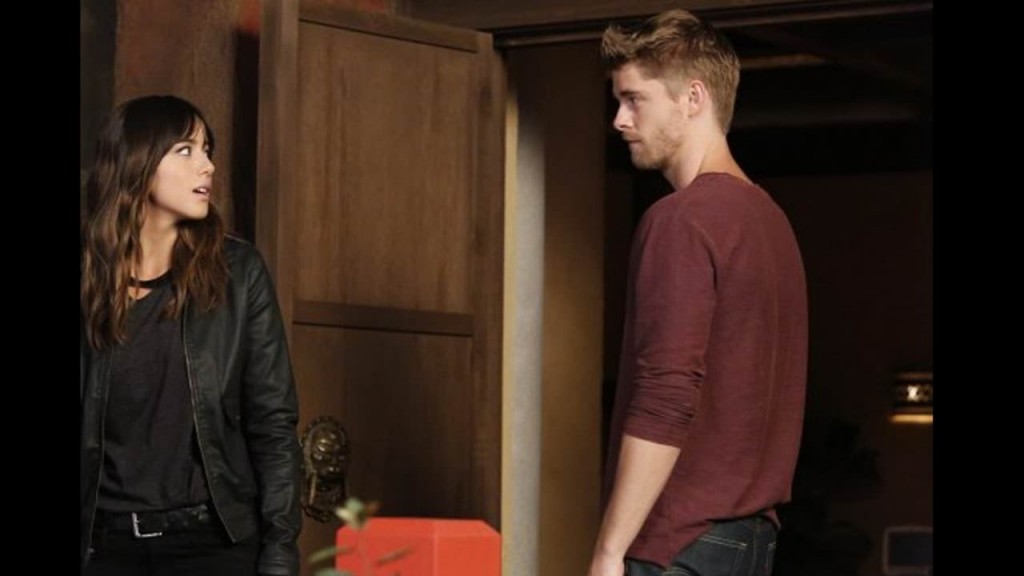Jessica Jones: Episodes 1-4
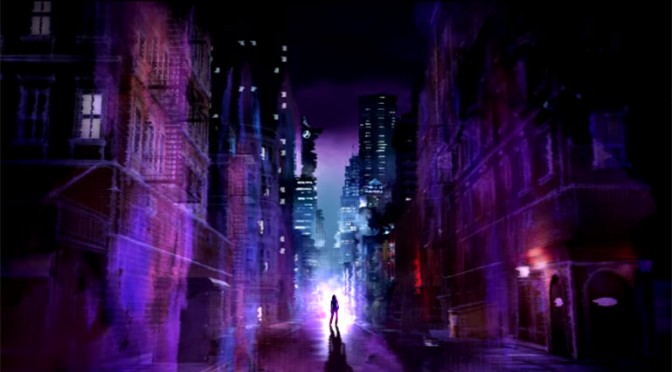
There is some good television based on comic books. This is not one of them.
Netflix just released Jessica Jones, the second series in Marvel Television’s streaming universe. Daredevil, the first of the television series, set the bar pretty high for the three series to follow. Unfortunately, Jessica Jones doesn’t come anywhere near the bar.
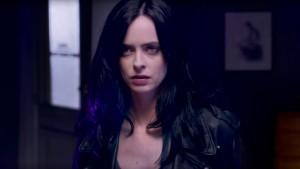
Daredevil did a lot of things right for a television series. The most important thing, the directors let the story unfold. The director, or directors as the case may be, of Jessica Jones never lets the exposition happen. Instead, we’re assaulted with long shots of Jones’s empty bed lasting seconds at a time. If it’s not the empty bed, it’s scenes of empty liquor bottles on the bedside table, empty bottles on desks, Jones buying liquor, or Jones finishing bottles of liquor with disgruntled looks. We get it. Jessica Jones is alone and is drowning herself in booze. It couldn’t be more obvious if the director literally hit us over the head with one of those bottles.
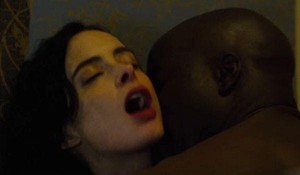
If it’s not the subtle-as-a-fart-in-church shots, it’s the voice overs. Jessica has to tell us everything she is doing, will do, or has done. Narration like this may work in a comic book, but in television it comes off as just plain bad. The viewer is never allowed to piece together things on their own. Is it because the average viewer of a comic book television show is not smart enough to link events together? No, Jessica Jones is just bad television.
A lot of television shows, many of them with high ratings, have to explain things to the audience. It seems like every episode of Bones, Criminal Minds, or the NCISs have a character explaining what’s happening by the middle of the episode and another character wrapping up everything at the end. The only difference between those shows and Jessica Jones is that those shows have better actors talking down to the audience.
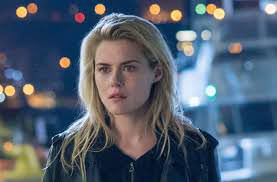
Krysten Ritter may have been good in Breaking Bad and The Gilmore GIrls, but she can’t pull off the street-hardened private investigator. She comes off as fake. Perhaps, it’s because she delivers lines like “I don’t flirt, I get what I want” with the same tone as she does when she’s buying one of her many bottles of booze. There are moments, explained away as her PTSD, Ritter tries to be vulnerable. However, through the crocodile tears, these scenes also come off as fake and insincere. The only way one can tell where Ritter is on the emotional scale is how far her out she flares her nostrils. It seems ninety-percent of the time has Ritter’s nostrils on full flare.
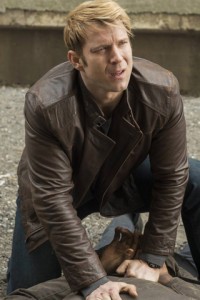
Unfortunately, the cast surrounding Ritter, with an exception or two, isn’t much better. Rachael Taylor and Wil Traval have been in better series than Jessica Jones. Both actors delivered better results in Grey’s Anatomy and Red Window respectively. However, there’s not too much you can do when one of the characters is a super hot talk show radio host and the other is a police officer with a special-ops military background. Both character types are cliched and the writers give both actors cliched lines to go with those characters.
The series even manages to make Carrie-Anne Moss boring. Moss may not be an Academy Award winning actress, but she’s still better than the material she was given in Jessica Jones. The scenes Moss appears in during the first four episodes are opposite Ritter. They all boil down to Ritter yelling sanctimonious lines at Moss and Moss explaining to Ritter what lawyers do for a living. It’s boring stuff.
It’s a little more difficult to get a read on David Tennant. In the first four episodes, Tennant has cursed, raised his eyebrows, and opened his eyes in varying degrees of surprise. Tennant doesn’t really stretch his acting in the first four episodes. Maybe he’ll deliver some lines in the next four episodes.
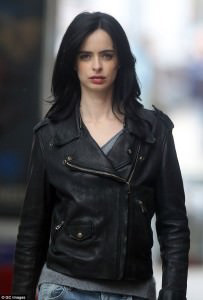
The series does its best to be slick. It’s difficult to be slick when the scenes are anything but slick. An entire episode is dedicated to Jones investigating whether or not a husband is cheating on his wife. In the end, the husband was never cheating on his wife. The whole thing was an attempt to kill Jones. In actuality, it was a cheap way to tie Jessica Jones into the Marvel world where the Avengers toppled the city. Of course, she had to trash the hotel room in the most overdramatic way possible.
In the first episode, Jones complains that the only cases she gets are the ones involving cheating spouses. Later, she says she likes those type cases “when she can get them.” Which one is it, Jessica? You either hate the cheating spouses or you like cheating spouses. It can’t be both.
After Jessica Jones introduces one of the most comic book plot devices used by writers, slick is so far off the map it will never be able to find it again. The gimmick (Don’t be fooled, it’s a gimmick) is that one specific drug used in surgeries is the only thing that can knock Kilgrave unconscious. Unless there is a specific reason why a surgery drug is the only one that will work on Kilgrave then any incapacitating drug should work. It’s difficult to believe a series that has told us everything like children hasn’t told us why this is the only drug that can be used. It’s totally ludicrous. In fact, some writers use the term deus ex machina to describe such ludicrous storytelling.
The first four episodes of Jessica Jones have been flat and boring. We’ve learned more about Jones’s office door than anything else. The first door joke was as unfunny as the fifth door joke. Jessica Jones will be out the door if it doesn’t improve in the next four episodes.
